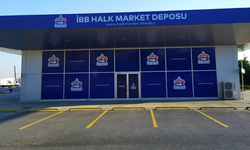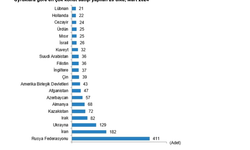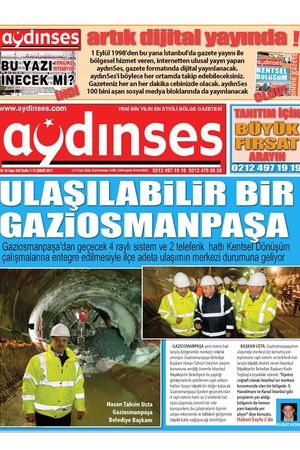Istanbul, July 1 () - Turkish manufacturing business conditions deteriorated in June, following a brief stabilisation in May, according to PMI™ survey data from Markit, due to the inconclusive election result that had undermined confidence and weighed on output and new orders, which both fell at sharper rates during the month.
The PMI fell from 50.2 in May to 49.0 in June, signalling an overall deterioration in business conditions at Turkish manufacturers at the end of the second quarter. The headline figure has been in negative territory five times in the first half of 2015,
averaging 49.2 over this period, compared with a long-run survey average of 50.9. The downward movement in the PMI in June mainly reflected sharper falls in output and new orders, and a weaker rate of job creation.
The headline Markit Turkey Manufacturing PMI is a composite single-figure indicator of manufacturing performance. It is derived from indicators for new orders, output, employment, suppliers’ delivery times and stocks of purchases. Any figure greater
than 50.0 indicates overall improvement of the sector.
“Having shown signs of stabilising in May, the Turkish manufacturing sector stumbled in June as output and new orders fell at sharper rates" said Trevor Balchin, senior economist at Markit and author of the report on Turkey Manufacturing PMI survey.
"According to survey respondents, the inconclusive outcome of the election weighed on business conditions and led to heightened uncertainty. Manufacturers also continue to face higher input costs as a result of the weak lira. Recent PMI data suggest that official IP growth will turn down in the coming months. ”
New export orders had also declined, despite the weaker lira, the report said. "The lira-dollar exchange rate was the main factor reported to have increased firms’ input prices during the month, inflation of which remained strong in the context of historic survey data."
According to the survey results, new orders placed at Turkish manufacturers declined for the sixth consecutive month in June, while the rate of contraction accelerated from May’s weak pace, as a number of firms reported increased uncertainty following the election. New export business also declined for the sixth successive month, despite the weak lira, said in the report.
Mirroring the trend for new business, output at Turkish manufacturers declined for the sixth month running in June and at a sharper rate, according to the report. "Despite the faster drop in production, backlogs of work contracted at the strongest pace in three months."
Lacklustre market conditions impacted on purchasing activity, which declined for the second time in three months, it said, while stocks of inputs were unchanged, while inventories of finished goods built up during the month.
"The main positive finding from the latest survey was a further rise in manufacturing employment. Jobs in the sector have been created every month for the past six years, except for a pause in March. That said, the latest growth in workforces was only
marginal" the report added.
Input price inflation remained strong in June and higher than the long-run survey average, since the weak lira-dollar exchange rate was again the main source of rising cost pressures, according to firms. Prices charged for Turkish manufactured goods rose at the second-strongest rate in 14 months as a result.



























